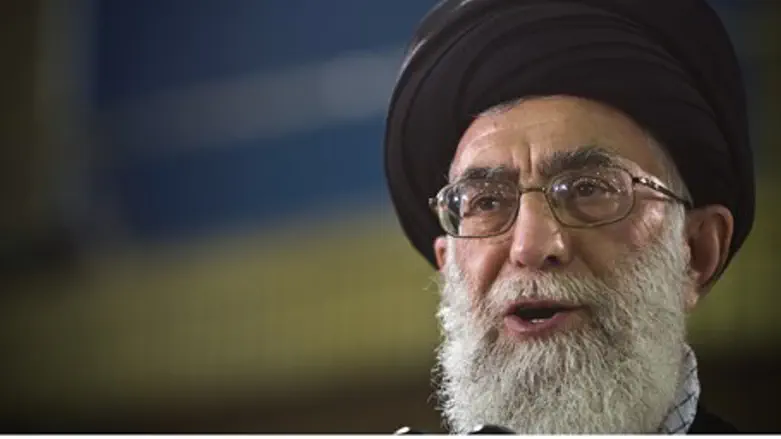
Iran's Supreme Leader, Ayatollah Ali Khamenei, has said he could accept a compromise in nuclear talks with Iran, as long as the deal is not “contrary to our nation’s interests”.
The comments were made Sunday to Iranian air force personnel and were reported by Reuters.
As Iranian Foreign Minister Mohammad Javad Zarif met counterparts in the talks at a conference in Munich, Khamenei said he "firmly" backed a fair nuclear deal.
"I would go along with any agreement that could be made. Of course, if it is not a bad deal. No agreement is better than an agreement which runs contrary to our nation's interests," he was quoted by Reuters as having said.
In a speech that still underlined his suspicions about Western nations that he characterized as "bullies", Khamenei backed President Hassan Rouhani's negotiations with them and said any workable deal would mean both sides easing their demands.
"As the president said, negotiations mean reaching a common point. Therefore, the other party ... should not expect its illogical expectations to be materialized. This means that one side would not end up getting all it wants," the Supreme Leader said.
"I am for reaching a good settlement and the Iranian nation too will certainly not oppose any deal to uphold its dignity and integrity," he added, an apparent warning to hardliners that they might have to accept a deal with powers including the United States, which is commonly known in Iran as "the Great Satan".
Iran and the six world powers reached an interim deal in November of 2013, under which Iran committed to limit its uranium enrichment to five percent and is gradually winning access to $4.2 billion of its oil revenues frozen abroad and some other sanctions relief.
The sides were then supposed to continue talks and turn the interim deal into a permanent. However, the talks have stalled and two deadlines for a final deal have been missed, with a third one looming on July 1.
Major sticking points are the pace at which sanctions would be removed, the size of Iran's nuclear fuel-producing capacity - a key consideration in preventing any output of bomb material - and the length of any agreement.
"Our (nuclear) negotiators are trying to take the weapon of sanctions away from the enemy. If they can, so much the better. If they fail, everyone should know there are many ways at our disposal to dull this weapon," Khamenei said, according to Reuters.
Any deal "must be concluded in one stage and consist of clear and detailed specifications, and not subject to (various) interpretations," he added.
"Given our past experience in dealing with the (West), a final draft must not leave any room for the other side to repeatedly extract concessions."
Zarif, meanwhile, appeared to rule out any new extension to negotiations with world powers as he met U.S. Secretary of State John Kerry in Munich.
"I do not think another extension is in the interest of anyone, as I do not believe this extension was either necessary or useful," Zarif said.
"In my view extension is not useful, not conducive to an agreement, and all my energy and focus and that of my colleagues and I'm sure my negotiating partners .... are all focused on reaching an agreement as early as possible," he added.
Recent reports indicated that the United States is ceding ground to Iran in talks and will now allow it to “keep much of its uranium-enriching technology,” thus allowing Iran to maintain its self-proclaimed “right to enrich uranium”.
Before the talks were extended until July, Iran was toughening its stance, with chief negotiator Abbas Araqchi saying he sees no prospect for a deal unless the other side abandons its “illogical excessive demands”.
A senior Iranian official followed those comments by declaring that Iran will demand that all Western sanctions be lifted as part of a final deal, rejecting an American proposal of a gradual lifting of sanctions.
